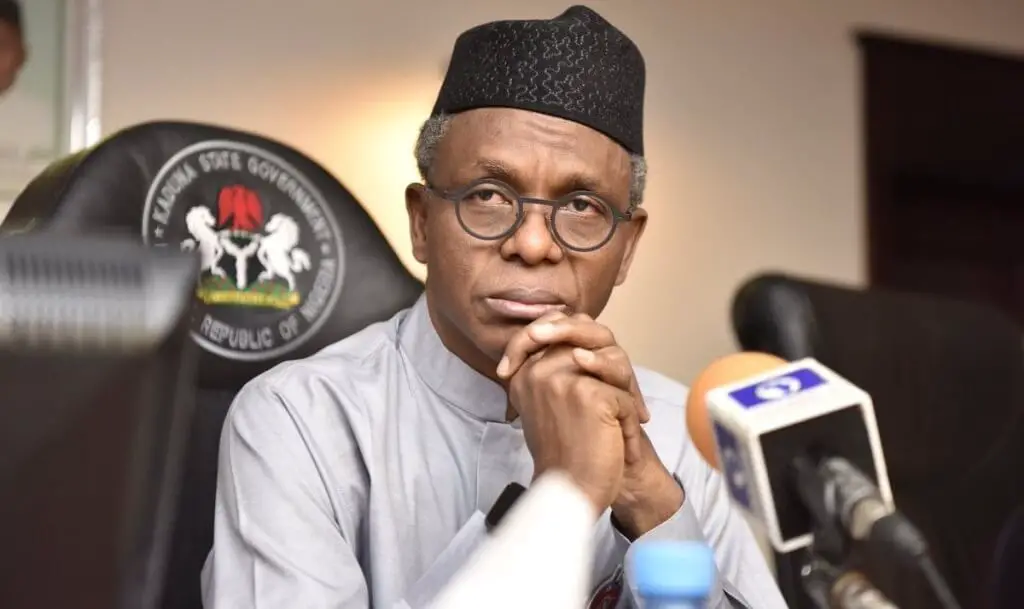The administration of former Governor Nasir El-Rufa’i secured a staggering $350 million World Bank loan in 2017, etching its name in Nigeria’s history books as the largest sub-national loan ever undertaken. As the loan injection flooded into Kaduna State’s economy, the initial impression may have been one of relief, but the underlying reality soon emerged: the influx of capital did little to address the systemic issues of productivity deficiency and economic stagnation that have long plagued the state. Instead, it merely deepened the entrenchment of the state into financial distress.
Initially, it was presented as a cure-all for educational reform, supposedly addressing the state’s educational challenges, especially the claimed presence of 22,000 unqualified teachers. However, this storyline swiftly disintegrated when the finance commissioner at the time, Senator Abdu Kwari, outlined a more comprehensive plan, pledging to revitalise infrastructure, including schools, hospitals, and roads, among other vital components.
Now, as the baton of governance passes to the current administration under Senator Uba Sani, the ramifications of this mammoth debt loom ominously large. Struggling to navigate the financial quagmire left in El-Rufa’i’s wake, Governor Sani finds himself shackled by the burden of repayment, rendering the fulfillment of his mandate a Herculean task.
As Kaduna State grapples with the consequences of past decisions, the call for transparency and accountability reverberates louder than ever, underscoring the need for a candid examination of the choices that led to this precarious predicament.
Contrary to the rhetoric peddled by past administrations, a meticulous examination of the loan’s framework and its resulting initiatives reveals a stark disparity from the promises made. Instead of a clear roadmap towards infrastructural development, the agreement conspicuously emphasizes the nebulous concept of “strengthening Kaduna State systems,” a phrase synonymous with soft investments rather than tangible infrastructure projects.
Central to the loan’s structure are the 10 Disbursement Linked Indicators (DLIs), strategic benchmarks crafted to monitor the progress of designated reforms. Despite the considerable financial infusion, the tangible impact remains elusive, echoing a sentiment of disillusionment among the people of state. Efforts to streamline business processes, a cornerstone of the loan’s objectives, have yielded no improvements.
The touted Memorandums of Understanding forged under the investment promotion DLI have failed to catalyse substantial investment inflows, underscoring a disconcerting disparity between rhetoric and reality. The agricultural investments yielded little, disappointing farmers; revenue and tax collection efforts failed, worsening fiscal problems with FAAC deductions.
This lack of transparency not only erodes public trust but also raises serious questions about the administration’s integrity and commitment to serving the best interests of the people. Amidst these shortcomings, the focus on soft investments, predominantly recurrent expenditures, underscores a glaring discrepancy with fiscal responsibility guidelines.
The El-Rufa’i administration’s tenure in Kaduna State will be remembered not for progress, but for the trail of financial ruin it left behind. One of the most egregious examples of this lies in the handling of the World Bank loan. Compounding the issue is the drastic fluctuation in the exchange rate since the loan’s inception. From $1/N305 at inception of the loan, the government now repays at $1/N1400. This exponential increase in debt servicing costs has placed an unbearable burden on the state’s finances.
Considering these revelations, the spectre of accountability looms large, demanding swift action to rectify the missteps that have brought Kaduna to this precipice. Rather than focusing on proffering a solution to the stark reality of the situation, a cacophony of dissent arises from various quarters. This is particularly disheartening as it is obviously fueled by self-interest and narrow ambition.
Moreover, those who taunt the current governor to resign if he cannot handle the inherited problems are not only shortsighted but also irresponsible. Rather than offering support or constructive engagement, they resort to petty tactics that only serve to further polarize and destabilise the state.
As we navigate the fallout of irresponsible borrowing, it is imperative that measures are taken to ensure transparency and accountability in governance. The financial crisis gripping Kaduna State serves as a stark reminder of the perils of irresponsible borrowing and misapplication of public funds. The pursuit of justice and accountability must remain paramount as we strive to pave the way for a brighter future for the state. The current administration must prioritise transparency and accountability by providing detailed reports on the utilisation of the loan to rebuild public trust.
Additionally, a thorough reassessment of spending priorities is crucial to ensure that funds are directed towards critical sectors like education, healthcare, and infrastructure, addressing the most pressing needs of the population. Diversifying revenue is key to reducing loan dependence. Fostering stability and boosting local industries, investment, and tax collection work magic.
Developing and enhancing local IT practitioners, including youth in cell phone repairs and software development, is often overlooked but crucial. This requires a multifaceted approach. Firstly, provide comprehensive skills training covering technical skills, software development, and hardware repair. Ensure access to necessary resources like software development kits and diagnostic equipment through technology hubs or innovation centres. Secondly, offer entrepreneurship support with guidance on business planning, marketing, and access to funding. Internship programmes aid professional growth, while supportive policies foster an enabling environment. These measures empower local IT practitioners with practical skills, market access, and contribute to a vibrant IT industry and ultimately to a healthy economy.
Adhering to fiscal responsibility guidelines is crucial, as is establishing oversight to prevent misuse of funds. Legal action against those responsible for mismanagement of the World Bank loan can aid in fund recovery and accountability. Collaboration with agencies like EFCC and international partners reinforces accountability.
The House of Assembly’s initiative to probe the loan management is commendable. Governor Uba Sani should collaborate with the House to uncover the state’s financial intricacies post-World Bank Loan.
Umar is of Kaduna Intellectual Forum for Leadership, Advocacy, and Good Governance




